Every August, school leaders in the north of England brace themselves for the inevitable – yet misguided – comparisons.
News outlets bemoan the “north-south divide” in GCSE results. Former Ofsted chiefs criticise “miserable” outcomes. Headteachers prepare to be told they’re letting children down.
But in the north east, those leaders have a powerful friend waiting to defend them.
Schools North East is the only organisation of its kind in England, in that it represents all 1,150 of the region’s schools.
It’s always been influential, but now it has the ear of education secretary Bridget Phillipson and schools minister Catherine McKinnell, both north east MPs.
As proliferation of academies has sometimes pitted different types of schools against each other, leaders in Newcastle, Sunderland, Darlington, Durham and their surrounding countryside speak with one voice.
‘A tale of two cities’
The mission is important, as demonstrated in a recent Sutton Trust report which chronicled the “tale of two cities” threatening Labour’s opportunity mission.
Poorer pupils in central Newcastle are over three times less likely to have a degree by age 22 than those in London’s East Ham, despite very similar levels of free school meals eligibility.
Last year, only the north west performed worse than the north east in the proportion of pupils achieving grades 4 or above in English and maths.
But in the pass rate among disadvantaged pupils, the north east came third, only behind London and the West Midlands.
It is this context – the impact of long-term economic deprivation and geographical factors that affect school performance – that Schools North East has sought to get politicians to take seriously since its inception in 2007.
‘I find it really insulting’
Chris Zarraga, the organisation’s director, tells me the “biggest bugbear I have, I find this really insulting, is that there’s an assumption that north east school leaders and schools aren’t as competent as other areas.
“When you look at what they’re dealing with, you’re talking about people at the cutting edge of education, who have been practising inclusion a long time before it became an Ofsted buzzword, and who have real skills in what they do.”
The problem, he says, is that the “system hasn’t adapted to them”.
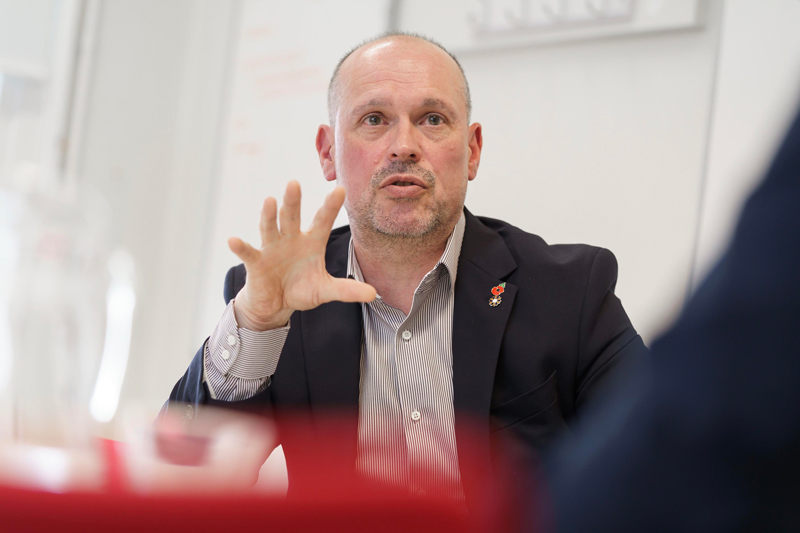
Comparing the north east with London, for example, is “like a premiership team that has no budget” competing with Liverpool or Manchester City.
“We have the lowest number of subject specialists teaching things like maths and English in our most deprived schools, which, again, the research evidence shows has a huge impact on your exam results,” Zarraga says.
“And we’re never going to compete with London in terms of attracting people to come and work in the profession here.”
‘Not a lack of ambition’
One example where this penalises north east schools in league tables is the shortage of language teachers, which means take-up of the English Baccalaureate is lower.
“That’s nothing to do with a lack of ambition in north east schools. That’s just a structural issue that, again, there’s been no real effort to address.”
Schools North East was the brainchild of Les Walton, a former head, council education lead and government adviser.
He formed the group in the late 2000s after heads realised they had “virtually no voice in education whatsoever, in the policy debate”, Zarraga says.
Since then, he believes there’s been “tremendous progress” in persuading politicians to recognise the unique challenges the region faces.
‘Context isn’t an excuse, it’s a reality’
“We are literally light-years ahead of where we were 10 years ago in understanding school performance and the support that schools need,” he tells me, as we meet in the charity’s offices, the former Lord Mayor’s residence in Newcastle.
Phillipson, who represents Houghton and Sunderland South, and McKinnell, the MP for Newcastle North, have engaged “really strongly” with efforts to help politicians understand “nuances” around league tables since they were elected in 2010.
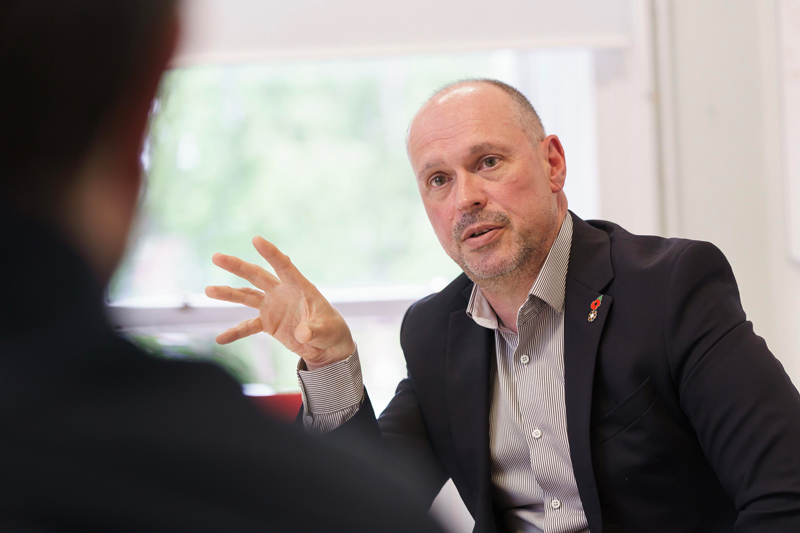
But he adds: “I think there’s still some way to go to convince the very top echelons of the DfE that what we’re talking about, about context, isn’t an excuse, it’s a reality that has a massive impact on the performance of our schools.”
He believes the DfE still needs to “let go a little bit in terms of that centralising impulse that it has, and be less control freaky about it, and respond to the context of areas better”.
The son of a well-known Gateshead headteacher father and a teacher mother, Zarraga attended what he calls a “bog-standard comp” in Newcastle.
All schools face same ‘fundamental issues’
His career was initially in finance, at Ernst and Young. But on a career break taking a master’s degree in business administration in Durham, he realised he didn’t want to return to the private sector.
After working on a Treasury-funded project on enterprise education, he applied for a job at the newly-founded Schools North East in 2008. He became its director in 2019.
The organisation started with a “very small” amount of funding from the then North East Regional Development Agency, with the expectation it would become self-sufficient, and fast.
Ironically, the RDA was subsequently culled in the coalition government’s bonfire of the quangos. But Schools North East survived, and found its voice as the academies programme drew more divisions in the schools community.
Zarraga said regardless of school type, “the fundamental issues that you’re struggling with around the development of policy and the impact on the north east, the way that policy often misses the mark in terms of the key issues that schools want addressed, those didn’t change at all.
“Education got sidetracked. [It] went down a cul-de-sac with kind of a systemic debate, ‘should you be an academy?’ When really that school improvement agenda and the key issues facing schools were more important. There’s more uniting schools than pulling them apart.”
‘One-size-fits-all policy’
Schools North East works hard to draw attention to the greater challenges its schools face.
“There’s been a massive shift over the last 10 or 15 years in the understanding of what school performance is and why,” he adds.
“But the problem is we still have a one-size-fits-all policy approach that doesn’t really suit areas like the north east.
“And it’s not just the north east. It’s just that in the north east we have the greatest number of the most serious issues concentrated into the same area.”
Zarraga brings up the National Tutoring Programme as an example. Schools North East raised capacity issues from the start.
“There isn’t the infrastructure of tutors,” he says. “Virtually no capacity compared to London.”
As a result, take-up was inevitably lower, and noted in the national press, including this publication.
Concerns over Ofsted reform
Zarraga is worried this is happening again with Ofsted reform.
In the early years of Schools North East, chief inspector Sir Michael Wilshaw strengthened the link between outcome data and inspection grades. The north east was “heavily penalised”.
“You’d look at the data and you’d have a pretty good idea of what was going to happen.”
The region fared better under Amanda Spielman’s new framework in 2019, focused more on the curriculum schools taught, not their results.
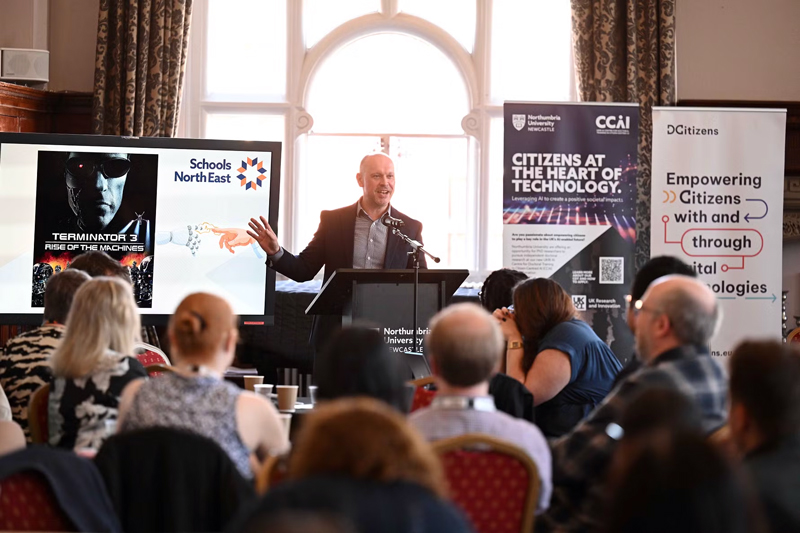
But under proposals put forward by Sir Martyn Oliver – which include giving schools a grade for achievement – there’s a “real worry that we go back to a more data-led system than we’ve had”.
Leaders also fear the proposals are a foregone conclusion, despite a recent consultation, and are concerned about how you get consistency across inspections with even more grades.
The Sutton Trust’s recent report showed the “massive” barrier facing the Labour government in its mission to break down barriers to opportunity, Zarraga says.
London poverty ‘very different’ to the north east
He points out the Conservatives also had the levelling-up agenda, which finally acknowledged that “London, and certain areas of the south have massive advantages just by dint of location and the structure of industry, society, businesses, etc”.
But even then, the north east was shunned in the original “opportunity areas” programme. Zarraga says the DfE acknowledged it hadn’t factored-in long-term disadvantage when selecting the original areas.
A special side-project, Opportunity North East, was formed, but it launched just before the pandemic, and was short-lived.
Zarraga acknowledges there are some “really deprived areas” in London, but the structure of poverty is “very different to the north east”.
“Families tend to be in poverty for a much shorter period of time than they are in the north east because they have greater labour opportunities around them. Transport infrastructure is much, much better, enabling them to seek work further afield.”
‘Kicking the can’
Zarraga also acknowledges a “sense of disappointment across the sector” that after such a long period in opposition, Labour didn’t have “more, bolder and fully formed ideas.
“We’ve gone straight into three major reviews, SEND, Ofsted and the curriculum, which is a little bit like kicking the can further down the road for another year or two.
“I think the sector had expected more fully fleshed out ideas. We’ll have to see what comes from the various reviews. [But] it has increased uncertainty in the sector… I don’t think it’s been ideal.”

Much of the criticism has been levelled at Phillipson, with reports she could be demoted in an upcoming reshuffle. Zarraga says: “It’s always been seen as a junior role, as a temporary position for very ambitious ministers.
“You march boldly up the hill, and then you stop halfway, and then you march back down. It’s been the ‘Grand Old Duke of York’, lived out in schools, which is not fair on school leaders. It’s not fair on teachers, staff, and particularly on children and families.”
He hopes for a “period of stability where someone like Bridget, who does understand those underlying issues has an opportunity to bring some coherence and some actual strategic planning to education, which has been lacking for as long as I’ve been involved”.
Policy unit needed
The government has ambitious goals for education, particularly the early years. Prime minister Sir Keir Starmer recently announced he wanted 75 per cent of pupils “school-ready” by 2028.
But Zarraga says he “would be very surprised, without very significant investment”, if that target was met. He cites three-year waiting lists for assessment for autism as an example.
“The services around schools have been so horrifically strained that in some places, they just don’t exist.”
Schools North East will soon celebrate its 20th birthday. What does he want to see in the next 20 years?
He wants to have “some kind of policy unit of the DfE based in the north east”.
The regional director and Darlington office regularly interact with schools.
But he adds: “I think it goes up the chain, and it hits a ceiling, and then you go to a much smaller group of people who are predominantly south east-based and south east-experienced, and they’re not as receptive.
“I would like to see that devolution, a greater DfE manpower in the region, and a greater devolution of decision-making around funding and the policies that support [schools]. I think that would make a huge difference.”


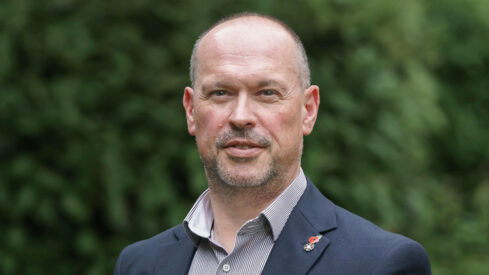




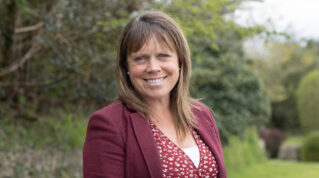
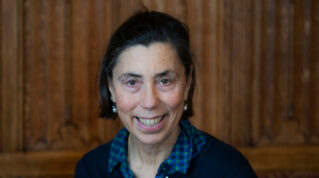
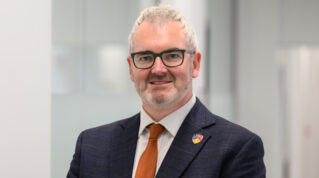



Your thoughts